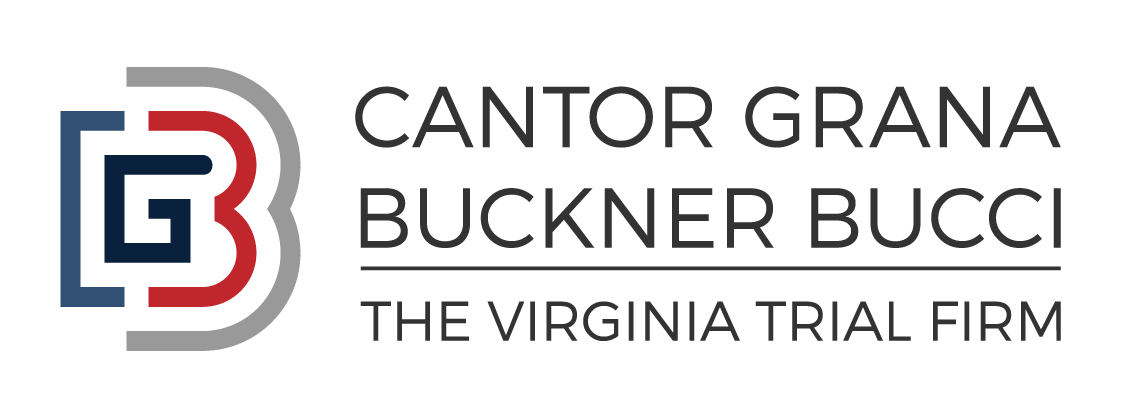Seeking Compensation for a Blunt Force Injury
Blunt force trauma to the head can result in serious injuries, often leading to long-term complications and substantial medical expenses. Victims of head injuries due to the negligence of others deserve compensation for their damages.
You Deserve Expert Legal Representation
If you’re grappling with the aftermath of a head injury due to blunt force trauma, Cantor Grana Buckner Bucci can help. Our team of experienced brain injury attorneys is adept at navigating the complexities of personal injury law, fighting relentlessly to safeguard your rights and secure the compensation you deserve. We understand the physical, emotional, and financial toll such an injury can take, and we are committed to providing robust legal support every step of the way. With Cantor Grana Buckner Bucci in your corner, you can focus on your recovery while we focus on achieving justice on your behalf. Contact our brain injury lawyers for a free consultation today.

What Defines Blunt Force Trauma to the Head?
Blunt force trauma to the head is defined as an injury that occurs when an object strikes the head but does not penetrate the skull. The severity of the injury can vary significantly, depending on factors such as the force of the impact, the object causing the trauma, and the area of the head that is affected. Symptoms can range from mild concussions to severe brain injuries, leading to temporary or permanent cognitive impairment, physical disability, or even death in the most severe cases. It’s crucial to seek immediate medical attention following any head injury, as some symptoms may not be immediately apparent.
Understanding Blunt Force Trauma
Definition
Blunt force trauma is a non-penetrating injury to the body, often resulting from a significant impact with a blunt object or surface. When this type of trauma is inflicted on the head, it can lead to devastating consequences, impacting both the physical and cognitive functioning of the victim.
Causes
Blunt force trauma to the head can be caused by various incidents, including motor vehicle accidents, falls, sports injuries, physical assaults, or any event where the head is struck with considerable force. The object or surface causing the trauma doesn’t penetrate the skull, but the impact can still cause significant damage to the brain.
Categories of Blunt Trauma
Trauma severity is typically categorized as mild, moderate, or severe. Mild trauma might result in a concussion, where the victim experiences temporary symptoms such as headaches, dizziness, and confusion. Despite being termed ‘mild,’ these injuries should never be taken lightly, as they can still have lasting and permanent effects.
On the other hand, severe trauma can cause life-threatening conditions such as brain damage, skull fractures, or internal bleeding. Symptoms can include loss of consciousness, seizures, severe headaches, weakness in limbs, and changes in pupil size. Severe trauma requires immediate medical attention and can result in long-term or permanent cognitive and physical impairment. Understanding the difference in severity is crucial to grasping the potential implications of blunt force head trauma and the urgency and level of medical intervention required.
Symptoms and Consequences of Blunt Force Trauma
Blunt force trauma to the head can lead to a wide range of symptoms, varying in severity and duration. These symptoms can be immediate or long-term and affect physical and cognitive functioning.
Immediate Symptoms
Alteration or Loss of Consciousness: The victim may become confused or disoriented, not remembering the incident or feeling unsure of their surroundings. They may also lose consciousness during or immediately after the incident. The duration of unconsciousness can provide a clue about the severity of the trauma.
Headache: A sudden, severe headache is a common symptom following blunt-force head trauma.
Nausea and Vomiting: These are frequent symptoms that can indicate a more severe injury.
Seizures: In some severe cases, the victim might suffer seizures immediately after the trauma.
Long Term Symptoms
Memory or Concentration Problems: Trauma victims might struggle with memory recall or struggle to concentrate on tasks.
Mood Changes or Mood Swings: Changes in mood or personality are common long-term symptoms, including depression, anxiety, or irritability.
Sleep Disturbances: Victims might experience insomnia, excessive sleepiness, or other sleep disturbances.
Persistent Headaches or Neck Pain: Some victims might suffer from ongoing headaches or neck pain long after the incident.
Sensitivity to Light and Noise: This symptom may persist for several months or more after the injury.
Cognitive Impairment: Depending on the severity and location of the trauma, the victim may suffer from long-term cognitive impairment affecting memory, reasoning, and cognitive flexibility.
Physiological Symptoms
Neurological Deficits: These can include weakness, numbness, or decreased coordination.
Sensory Problems: Victims might experience problems with their senses, such as blurred vision, ringing in the ears, or changes in the ability to smell or taste.
Physical Disability: In severe cases, blunt force trauma to the head might lead to lasting physical disabilities.
Changes in Pupil Size: This physiological symptom can indicate severe trauma and requires immediate medical attention.
Protecting Your Rights After a Blunt Force Trauma Accident
If you or a loved one has suffered blunt force trauma to the head, it’s crucial to take steps to protect your legal rights. Here’s what you should do:
Seek immediate medical attention
Your health should be your top priority. This is crucial for your well-being, and medical records documenting your injuries can serve as important evidence in any legal action.
Contact law enforcement
Report the incident to the police, especially if it results from a crime or traffic accident. Request a copy of the report for your records.
Document everything
Write down everything you remember about the incident, including the events leading up to it, the accident itself, and the aftermath. This will be helpful when describing the incident to your lawyer.
Preserve evidence
If possible, take photographs of the scene where the accident happened, your blunt force injuries, and any property damage. Save any physical evidence related to the accident.
Don’t engage with insurance companies
It’s often advisable to refrain from speaking with insurance companies without consulting with a lawyer first. They may try to minimize your claim or blame you for the accident.
Consult with a personal injury attorney
An experienced attorney can guide you through the legal process, helping you understand your rights and the compensation you may be entitled to. They will handle negotiations with insurance companies and, if necessary, represent you in court.

How Can Our Brain Injury Lawyers Help?
Our brain injury attorneys can provide comprehensive legal support in the following ways:
Evaluating your case: They can assess the details of your injury and the circumstances surrounding the event to determine the potential for a successful legal claim.
Collecting evidence: They can help gather all necessary documentation and evidence, including medical records, police reports, and witness statements.
Negotiating with insurance companies: They can handle all interactions with insurance companies, protecting your interests and ensuring you receive the compensation you deserve.
Pursuing a lawsuit if necessary: If negotiations do not result in a fair settlement, our attorneys are prepared to take your case to court.
Providing legal advice: They can guide you through each step of the legal process, keeping you informed of your options and helping you make informed decisions.
Offering emotional support: Dealing with a traumatic brain injury can be emotionally draining. Our attorneys understand the challenges you face and can provide empathy and understanding throughout the legal process.
No fees unless we win: You do not need to worry about legal fees unless we secure a settlement or win your case in court. We believe in the cases we take on and are committed to fighting for justice on your behalf.

Our Brain Injury Expertise
Our personal injury law firm boasts profound expertise in handling complex and highly specialized cases, particularly in the field of brain and spine injuries. Our dedicated team of brain and spine injury specialists consists of Irv Cantor, Elliott Buckner, Stephanie Grana, Anne McDonnell, and our expert legal support staff. They bring unparalleled acumen to these highly complex case types.
Our top-rated brain injury attorneys, backed by an in-depth understanding of the complexities and intricacies involved in these cases, have a successful track record of achieving the desired results.
We Fight For You
If you have sustained a severe head injury from blunt force trauma due to the negligence of another party, reach out to an accomplished Richmond brain injury attorney at Cantor Grana Buckner Bucci. We have the expertise to accumulate the necessary evidence to help you secure fair compensation. Contact us as soon as possible for a complimentary evaluation of your case.











